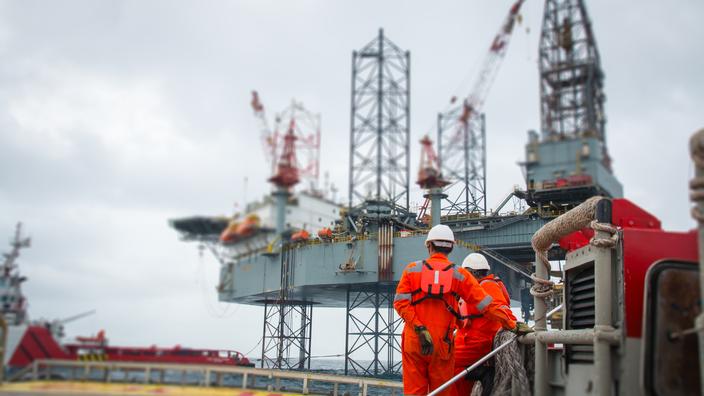The British government announced on Wednesday that it wanted to authorize new oil and gas drilling in the North Sea, which is going badly with NGOs a few months before the United Kingdom’s organization of COP26.
The announcement comes as part of an agreement unveiled Wednesday with the hydrocarbons sector on the energy transition in the North Sea, which promises to only authorize exploration projects that would be compatible with the country’s objective of being carbon neutral by 2050.
Read also :Oil again under pressure from lockdowns and the dollar
Hydrocarbons in the British North Sea remain strategic for the United Kingdom, since they are a source of significant tax revenue, help meet its energy needs and are a major provider of jobs.
However, the government intends to significantly reduce the carbon footprint of the energy sector in the North Sea, while protecting 40,000 jobs. Oil and gas extraction in the region is responsible for 3.5% of UK greenhouse gas emissions. The goal of the agreement announced on Wednesday is for the sector to reduce its emissions by 50% by 2030, thanks to industry and government investments of £ 16 billion.
This reduction in pollution will be obtained by supplying oil and gas platforms with renewable energies, by CO2 capture and storage projects or by the production of hydrogen.
The government will also stop financially supporting fossil fuel projects abroad from March 31. France, by way of comparison, will end in 2025 export financing guarantees for oil projects, and 2035 for gas.
«We are sending a clear message to the world that the UK is going to become a nation with clean energy”Said Kwasi Kwarteng, Minister of Enterprise. But the environmental movements were not convinced.
For Mel Evans, from the NGO Greenpeace, refusing to give up the new oil and gas permits “is a total failure when it comes to being an example on climate in the year of COP26», The climate conference organized in Glasgow in November.
Read also :Left unchecked, global oil appetite will hit new high by 2026
Jonathan Marshall, a head of the Energy and Climate Intelligence Unit (ECIU) think tank, believes that the lack of a date for stopping North Sea mining is “a glaring oversight».
The first black gold producer in the European Union since Brexit, Denmark announced last December that it would cease exploitation of oil and gas in the North Sea in 2050.
– .


